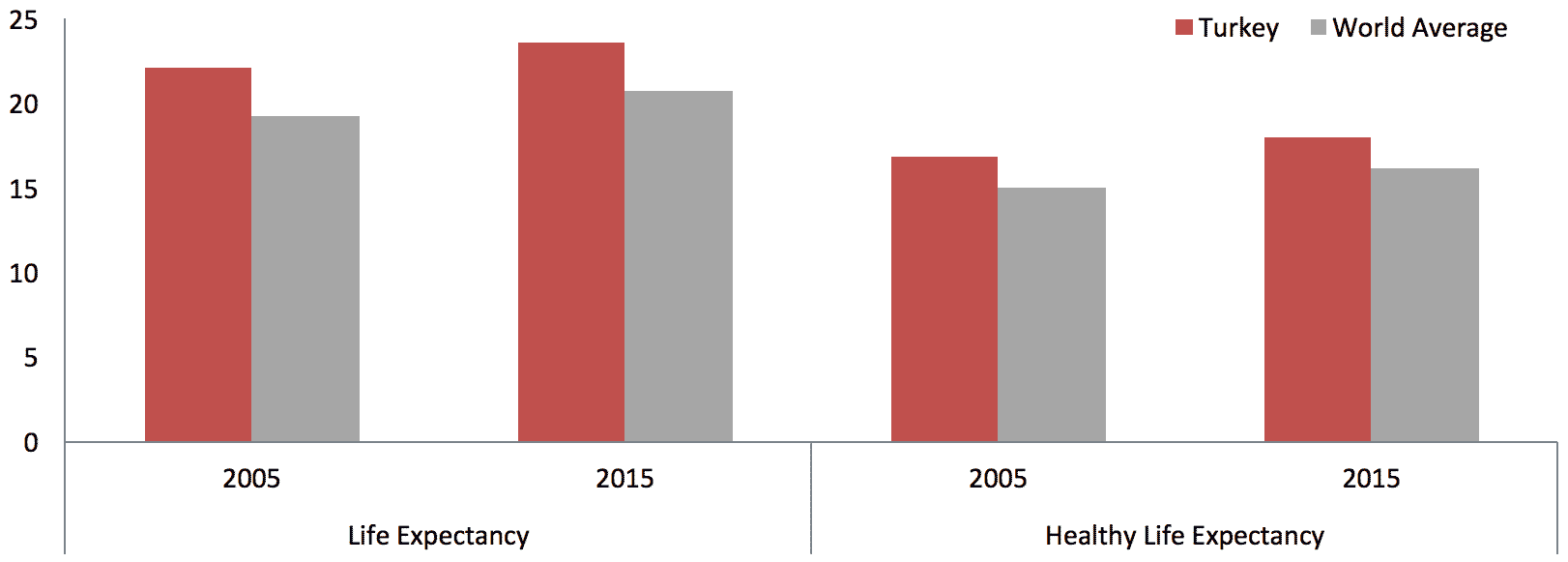Turkey’s 65 and older population will more than triple by 2050, aging at the second-fastest pace among OECD countries. While awareness of this demographic shift is gaining traction, it has yet to become a priority for the Turkish government, which has been grappling with other more immediate issues, including geopolitical and national security risks, economic slowdown, youth unemployment, and social stability.
The absence of aging among the government’s priorities is particularly evidenced in negligible efforts to tap productive opportunity among the older population. Although the ongoing gradual increases in pensionable age will help to boost economic participation among older adults, employment support for this group is limited. Similarly, older Turkish adults’ usage of the Internet is among the lowest in OECD, with a significant divide from the general population, and their access to training opportunities is limited.
Nevertheless, the Turkish government has acknowledged the social and economic impact of its aging population, and it is actively working to improve the social safety net and to increase community support for aging in place. Having achieved universal healthcare coverage over the past decade, the government is increasingly focused on the quality of care services. However, more work is warranted in order to accommodate a healthy aging population.
Number and Share of Population Age 65 or Older
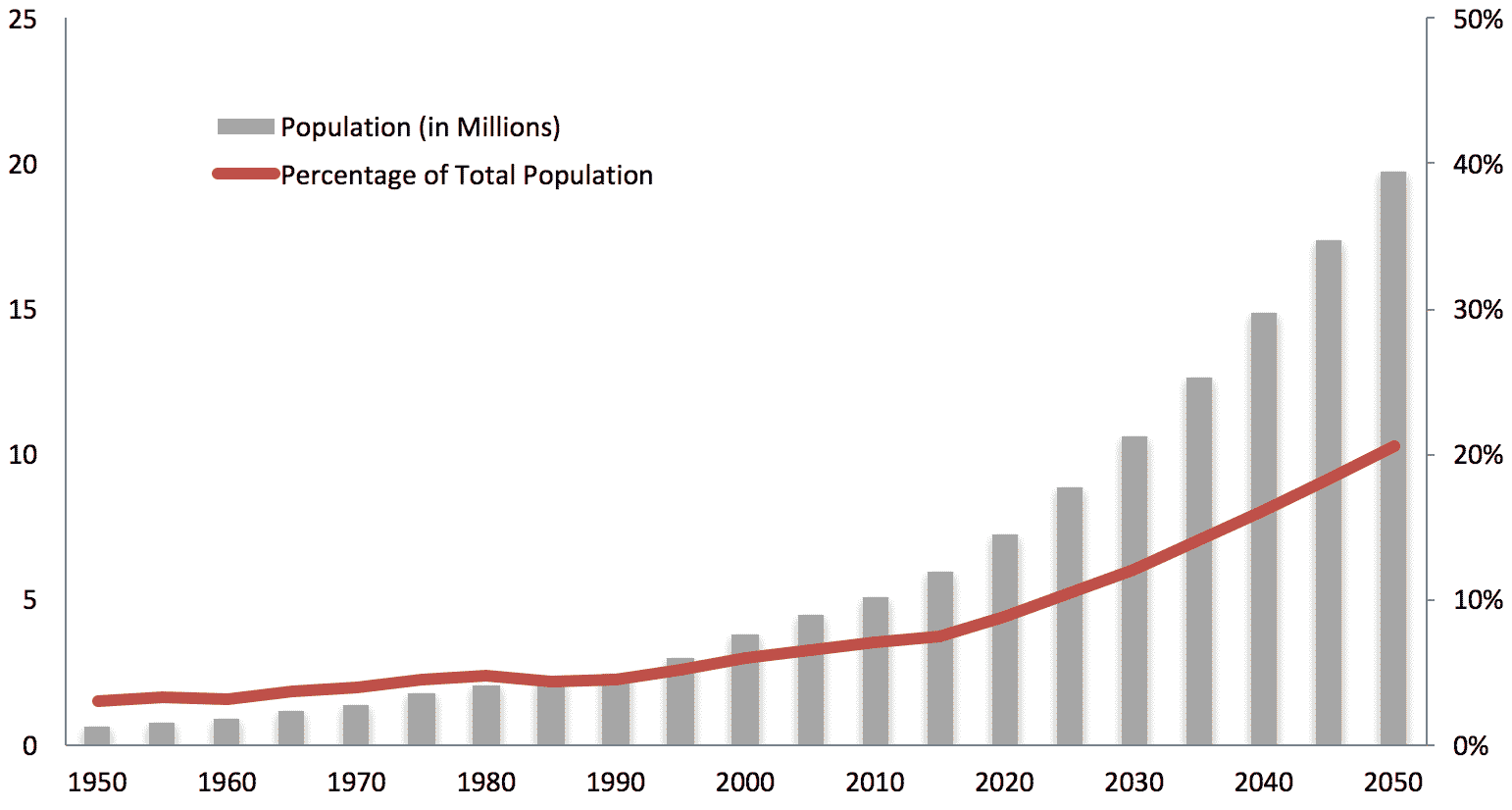
With a median age of just 29.8, the second lowest in the OECD, Turkey’s population is set to age rapidly. It is projected to become an “aged” society within two decades, when the population age 65 or older exceeds 14 percent of the total population.
Source: UN Population Division
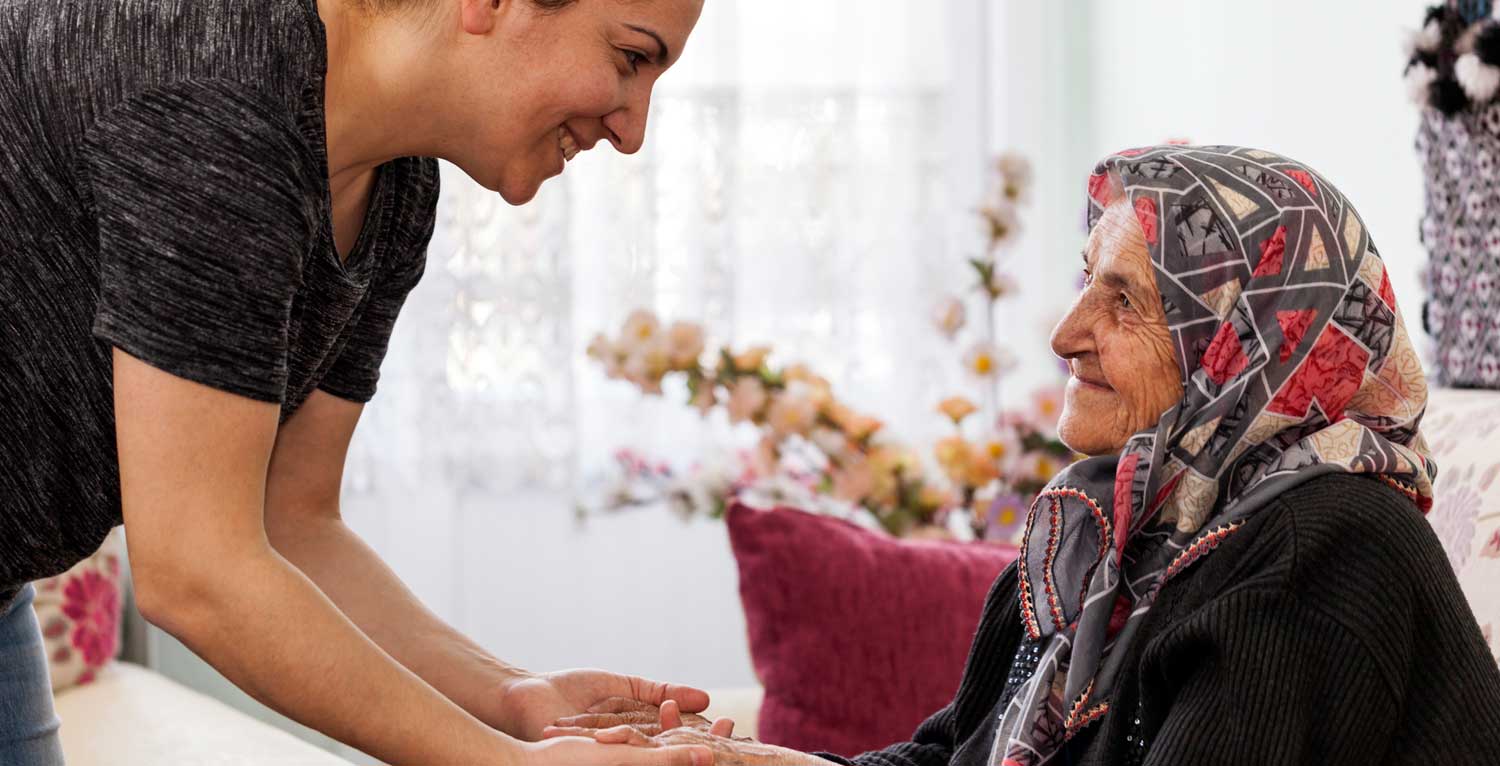
Community Social Infrastructure
A shift toward a nuclear family structure in Turkey is leaving more older adults living independently, but traditional family ties remain strong and continue to enable aging at home. Despite these strong family ties and respect for older adults, negative stereotypes around aging are prevalent in Turkish society. The Turkish government, as well as leading civil societies and non-governmental organizations, have been increasingly focused on cultivating positive perceptions of aging, with the country’s first Active Aging Strategy (2016–2020) expected to come out in 2017.
“In Turkey, older people are traditionally very important to, and valued, by their families. They were typically living with their children or in nearby houses. While the living arrangements in urban areas especially have been changing in recent decades, family relationships remain very strong, particularly in rural areas.”
– Kuzeyhan Ozdemir, Former President of the Turkish Seniors Association
Emphasizing the family’s central role in caring for older adults, the government has also elevated community support, mainly through projects undertaken by municipalities. However, accessibility of physical infrastructure remains an obstacle to older adults’ safe mobility.
The Elderly Support Program (YADES)
To strengthen support for aging in place, the Ministry of Family and Social Policies introduced the Elderly Support Program (YADES) in 2016 to fund projects by municipalities that provide community and home-care services to older adults. The program provides grants up to TRY 1.1 million (approximately USD 350,000) to approved projects. In fiscal year 2016–2017, the government has budgeted TRY 4.125 million (approximately USD 1.3 million) to fund five projects out of a total of 15 proposal submissions in the cities of Sakarya, Kayseri, Trabzon, Kahramanmaras, and Sanliurfa. In Sanliurfa, the municipality is aiming to achieve a range of targets within one year, which include renovating 125 houses that are in poor condition, providing home healthcare services to 600 older adults, delivering food packages to 200 older adults in need, and organizing various cultural and social events.
Almost 100 percent of older adults in Turkey are aging at home – with fewer than 0.5 percent residing in care institutions as of 2015. Nearly 85 percent of those 20 to 54 believe they should take care of their older parents.
Productive Opportunity
The large gender disparity in the labor force, due to women retaining the central role in managing household responsibilities, has been a central obstacle to tapping the productive potential of Turkey’s older population. A push by the government to encourage families to have more children could further exacerbate this issue. As a society grappling with rising youth unemployment, economic engagement for older adults has not been elevated to a public policy priority, although ongoing gradual increases in the pensionable age are expected to boost participation in the labor force. Today, Turkey has the lowest normal pensionable age for men and women within the OECD.
Labor Force Participation Rate Age 65 or Older
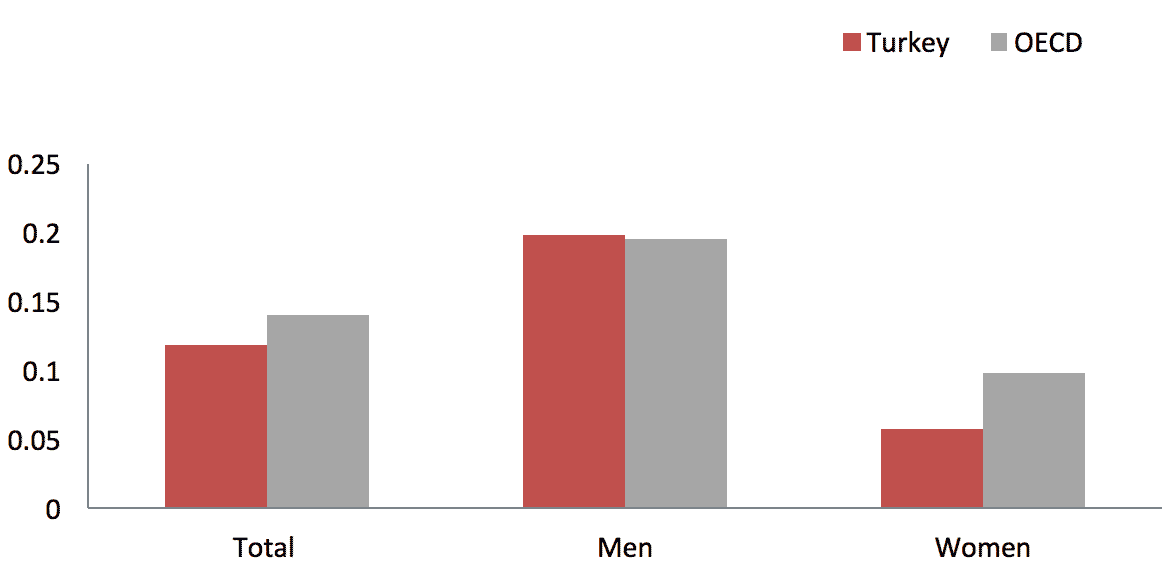
Normal Pensionable Age
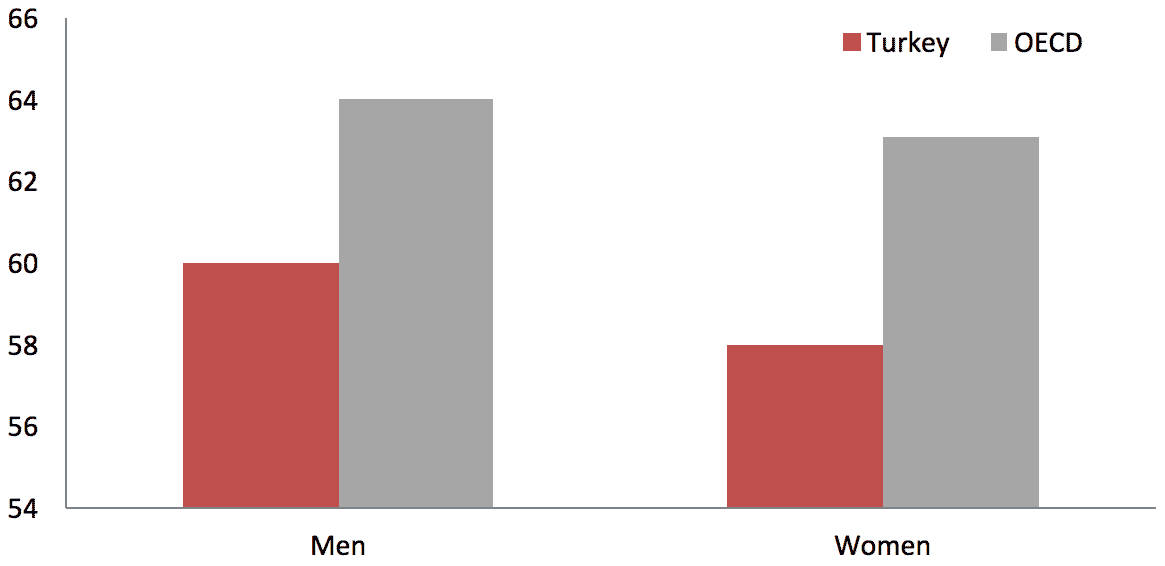
“Renewal University”
In 2015, Akdeniz University, a public university in the city of Antalya, launched the first academic program dedicated to older adults, called “Renewal University.” Targeting people in their 60s or older, the four-year program offers a wide selection of courses, including sociology, psychology, biology, technology, chemistry, agriculture, and medicine. The program is free of charge and assigns no grades. Its goals are to enhance the lives and creativity of the students and to help them stay cognitively healthy. Interest has grown quickly following the program’s trial run in May 2015, with enrollment exceeding 300.
Nearly 75 percent of older workers in Turkey were employed in the agricultural sector as of 2015. Approximately 41 percent of those age 65 or older were illiterate or had not completed elementary school.

Technological Engagement
Mirroring educational attainment, older adults in Turkey have among the lowest rates of technology adoption, leading to a large digital divide with tech-savvy younger people in the country. The government has endeavored to address this by increasing access to infrastructure and hardware, but the lack of training opportunities is the primary barrier to engaging older adults in the digital era. While low adoption of digital technology has undermined the market segment’s attractiveness for the private sector, leading telecom companies have been working to improve digital inclusion, with an eye to market expansion as well as corporate social responsibility.
“Life Is Simpler with Internet”
The Internet literacy project “Life Is Simpler with Internet” was launched in 2013 by Turk Telekom, a conglomerate, in collaboration with UNDP and the Turkish NGO Habitat Association for Development and Governance. With the help of volunteers, the project provides training on topics including basic Internet use, e-government, video communication, online banking, and social media. Targeting people age 35 or older, it should help to improve digital literacy of both current and upcoming generations of the older population. As of 2016, it had provided workshops in 50 cities to more than 21,000 participants, with the goal of increasing the number to 30,000 in 2017.
The Internet and Computer Usage in 2016
(Percentage of Individuals Using the Technology in the Last Three Months)
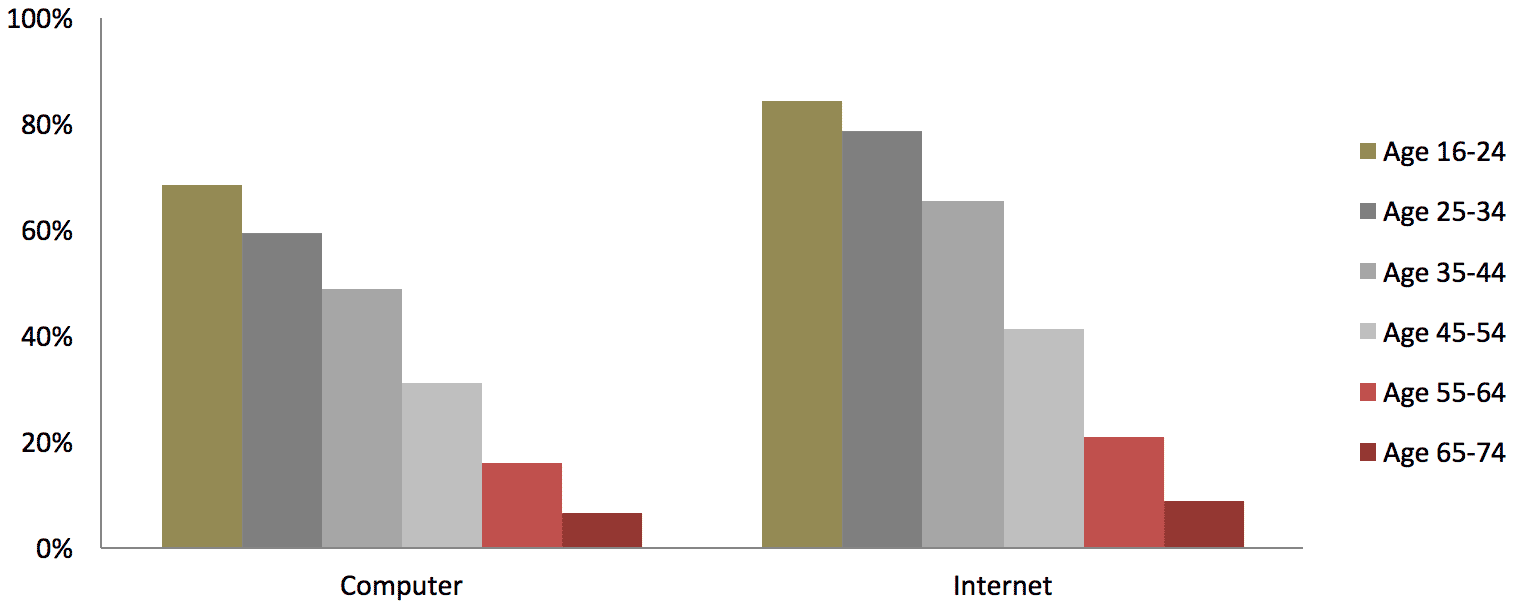
As of 2016, fewer than 7 percent of those ages 65 through 74 used computers, and just 9 percent were online.
Source: Turkey Statistical Institute
Healthcare & Wellness
Both the lifespan and healthspan of older adults in Turkey have improved significantly over the past decade, thanks in part to the country’s impressive reforms to its healthcare system, achieving universal healthcare insurance coverage while reducing private health expenditure. The government is also paying greater attention to quality of medical care, evidenced by its recent moves to tighten regulation of prescription drugs and to curb overuse of medicines. In the face of rising care needs of the aging population, the Turkish government has prioritized family-centered care, providing support primarily through financial subsidies. However, there are significant gaps in meeting the needs of the middle-class aging population.
Caregiver Service Program
The Turkish government introduced the Caregiver Service Program in 2007 to subsidize caregiving for low-income older adults and their families. The program was designed to compensate family members for the financial loss associated with leaving a job to care for an older relative and to create an incentive for women to enter the labor force as external caregivers. Family members or external caregivers dedicating at least eight hours per day to caregiving receive a monthly wage of TRY 881 (approximately USD 280) as of the second half of 2016, or just over half of the minimum wage. Older adults with incomes no higher than two-thirds of the minimum wage are eligible for external caregivers, and for those families living at that limited income level, relatives can receive the subsidy. It is estimated that 5.5 million workers – nearly 60 percent of formal registered employees in Turkey – earn less than the minimum wage.
As of 2015, those age 60 through 64 were expected to live 23.6 years – 1.5 years longer than one decade ago – and to have 18 years of healthy life, an increase of 1.1 years from 2005.
Source: Institute for Health Metrics and Evaluation
Life Expectancy and Healthy Life Expectancy Ages 60 – 64; in Years
